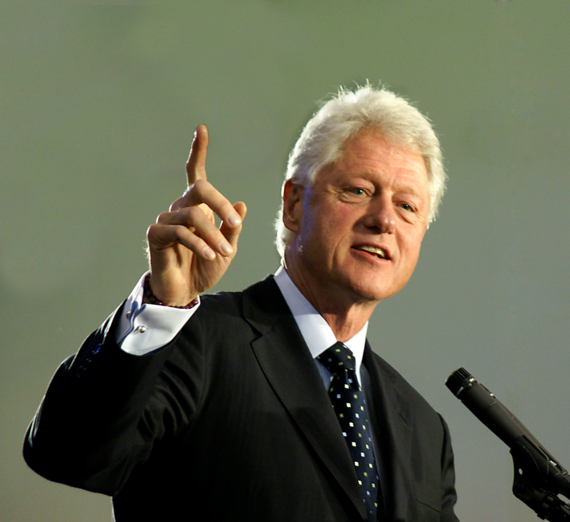Michelle Alexander did a great job of exposing how many of Bill Clinton's policies negatively impacted African Americans. Under Clinton, more African Americans were incarcerated than under George Bush Sr. and Ronald Reagan combined. Clinton's policies on crime and drugs have been a critical factor in developing what Alexander referred to as the New Jim Crow. Similarly to the old Jim Crow, those who have been convicted for non-violent drug offenses have been denied voting rights and have been subject to housing and job discrimination. Clinton, as Alexander explains, "eliminated Pell grants for prisoners seeking higher education to prepare for their release, supported laws denying federal financial aid to students with drug convictions, and signed legislation imposing a lifetime ban on welfare and food stamps for anyone convicted of a felony drug offense--an exceptionally harsh provision given the racially biased drug war that was raging in inner cities."
Clinton's presidency did not only negatively impact people of African descent in the United States. When we look at the totality of Clinton's policies as it concerns African people, the pattern that emerges is that throughout Clinton's presidency he pursued policies that have harmed African people in a number of ways. Clinton encouraged Haiti to drop tariffs on imported American rice. The result of this was that Haiti's local rice industry was virtually wiped out. In 1998, Clinton ordered a strike against chemical weapons factory in the Sudan. The problem was that the factory was actually one that was used to make medicine. The result of the strike was a medicine shortage in one of the poorest countries in Africa.
Clinton has since expressed regret for not doing more to prevent the genocide in Rwanda, but when Clinton did decide to intervene in Somalia the result was not a very successful one. Clinton ordered American troops to go into Somalia to capture the Somali warlord Mohamed Farah Aidid. Aidid was never captured, but in the ensuing fighting eighteen American soldiers and thousands of Somalis (mostly civilians that were caught in the crossfire) were killed.
The vast majority of the foreign policy concern for the 2016 elections has been centered on the Middle East, but I think that black voters also have to develop a global perspective on racial issues. When President Obama went to Kenya and Ethiopia to discuss issues such as corruption in Africa he was met with criticism from some Africans who felt that America needed to address it's own racial situation first. One Ethiopian stated: "They are interested in other people's problems but they don't care about black people in their own country. Most of our black brothers and sisters are suffering in the US."
Both Kenyans and Ethiopians expressed their anger over the manner in which African Americans were treated. It's time that African Americans developed the same interest in well-being of our brothers and sisters in Africa and other parts of the world in assessing some of the failures of Bill Clinton's presidency and in assessing what the policies of Hilary Clinton and other candidates will be putting in place concerning the well-being of not only Africans living in America, but Africans in other parts of the world as well.
--
Dwayne is the author of several books on the history and experiences of African people, both on the continent and in the diaspora. His books are available through Amazon. You can also follow Dwayne on Facebook.

